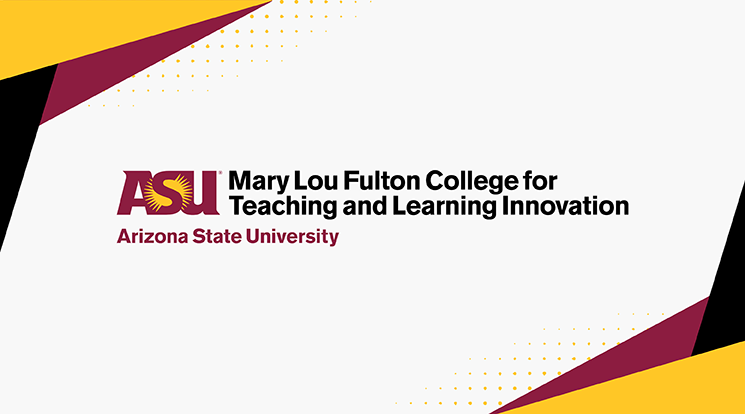Author and CEO talks grit, goals and transformation

Last month, ASU’s Mary Lou Fulton Teachers College held the iTeachELLs STEM summer camp. The five-day program took place at the Hyatt Regency Phoenix and was bolstered with some noteworthy guests. On day three, we met up with keynote speaker Mawi Asgedom.
Asgedom is a refugee turned Harvard graduate. He has written eight books and inspired teenagers and educators all over the world with his motivational speeches and online leadership classes, which he offers through Mawi Learning, a business he founded nearly 20 years ago.
As a child, Asgedom fled civil war in Ethiopia and survived three years in a Sudanese refugee camp. With his family, he resettled in the U.S., overcoming poverty, language barriers and the loss of two family members. Asgedom’s parents told him that education was the way to succeed in this country — he went to Harvard on a scholarship, where he gave the commencement address to 30,000 people.
Asgedom’s bestselling memoir, “Of Beetles and Angels: A Boy’s Remarkable Journey from a Refugee Camp to Harvard,” has been read as a one-book, one-community reading selection by thousands of schools and communities. He was also a guest on the Oprah Winfrey Show and his appearance was noted as one of Oprah’s Top 20 Moments. Winfrey said, “After I heard Mawi’s story on the show, I wouldn’t tolerate ‘can’t’ from anyone. I’d say, ‘Mawi walked across the desert. What do you mean it can’t be done?’”
His most recent book, “Powerful Educator,” helps parents and educators recognize and leverage their power to profoundly influence the youth in their lives.
Below, Asgedom shares more about Mawi Learning, Social Emotional Learningand his motivation to succeed.
Mawi Asgedom at the iTeachELLs STEM Summer Camp.
Share a bit about Mawi Learning.
I founded Mawi Learning right after I graduated from college in 1999. I knew I wanted to do this for the rest of my life and it’s approaching 20 years. We work with students from all over the world, focusing on Social Emotional Learning. This year we will be working in 12 countries
Talk a little about Social Emotional Learning.
Social Emotional Learning has really picked up steam in districts all over the United States. It’s understanding that the process by which students build relationships, set goals and manage their emotions is a core part of the educational process. It’s not just a nice-to-have, but a must-have because these things not only support student well-being but drive academic success.
Why did you choose to work with teenagers?
Because I was a teen when I experienced my moment of transformation. If you would have met me in the eighth or twelfth grade you would have seen such wildly different people — I had so much growth in that time. And because of my experience, I started Mawi Learning. Today, we serve students of all ages, and also provide professional development for staff. Folks came to us and said they needed something for kindergarteners and third graders — that’s when a lot of social and emotional stuff is so critical. If the educators don’t know how to use growth-mindset or understand it in their own practice, they’re limited in how they can develop it in the students. We need to equip and train the staff to lead the social and emotional learning. They are the biggest lever point within a school. They create the culture within a school.
You have overcome a lot in life, including losing your brother and father at a young age. How do you stay strong and motivated?
Everyone, at their own time, figures out how to build grit and resilience. For me, the biggest factors that have helped the most were my personal faith, family support and friends. You can’t do any of it by yourself. I was devastated after losing my brother. He was my best friend. But two years later I was accepted into every college I applied to. I was able to do a lot of things for my family and experience this whole new growth that taught me a lesson I’ve kept with me my whole life, which is when you’re going through that terrible time and everything feels dark, you have to have the faith to believe things can be different and there may be new sources of joy and opportunity in your life. Of course, it’s not going to be how it was before — I don’t have my brother anymore. But you have to be open for new ways to grow and for life to bring new joy and blessings into your life. I believe that’s a part of grit and resilience. For example, I have three wonderful children now.
What was the process of writing a memoir like? What was your motivation behind it?
You have to share enough that it’s interesting and relevant and shares what you actually want to share, yet not so much that it violates basic codes, ethics and privacy of others. It’s a fine line. For me, the most important thing was to tell a story that hadn’t been told before. It was the first book written by a black refugee. It sold hundreds of thousands of copies and was on “Oprah.” It’s been read by schools, internationally, so I’m able to introduce diversity to people. One of the things that helped me with my resilience was telling myself that if I can help inspire people through some of the stories, maybe it gives the stories more meaning. Sharing my journey to help others gives me more positivity in life. And using my stories to be a difference-maker is powerful.
Learn more about Mawi Learning.